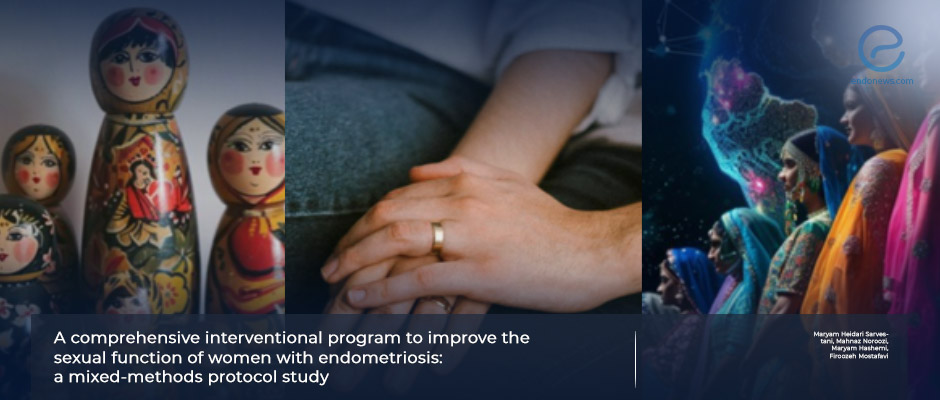Does a comprehensive interventional program improve sexual health in women with endometriosis?
Sep 10, 2024
Sexual dysfunction negatively affects the quality of life in women with endometriosis.
Key Points
Highlights:
- A comprehensive, multimodal approach should be used to improve sexual and reproductive health in women with endometriosis.
Importance:
- Educational activities may improve quality of life and sexual function by enhancing couples' sexual relations in couples with endometriosis.
What’s done here?
- An exploratory mixed-methods study with a sequential design with three phases: qualitative followed by quantitative is planned to provide an interventional program compatible with the culture and conditions of Iran to improve the sexual function of women with endometriosis.
- Reproductive-aged women between 19-45 years old who are sexually active will be recruited.
- Women with endometriosis who neither use drugs affecting sexual health nor have surgery, and whose partners have no sexual health issues will be selected.
- The interventional program in Phase II aims to improve sexual function, with Phase III conducting the quantitative study.
- Female Sexual Function Index scores will be analyzed pre- and post-intervention.
Key Results:
- The results of all phases will be presented to provide information on the benefits of the interventional programs to improve sexual life in women with endometriosis.
Lay Summary
Women with endometriosis suffer from dysmenorrhea, dyspareunia and chronic pelvic pain, all of which has significant negative consequences on their physical and psychological health regarding sexual and reproductive function.
A group of scientists from Iran, published a study protocol titled “A comprehensive interventional program to improve the sexual function of women with endometriosis: a mixed‑methods protocol study” in the journal Reproductive Health. The authors aimed to evaluate whether there is an impact of the interventional programs on sexual function in reproductive-aged women having endometriosis.
They planned the study in three phases as qualitative and quantitative study. Following Phase I aiming to explain sexual problems of women with endometriosis, the interventional program is designed in Phase II and performed in Phase 3. The standard questionnaire will be used to analyze pre- and post-intervention data.
“Conducting the present study, along with the design and implementation of an appropriate, native and culturally sensitive interventional program, can contribute to improving the sexual function of women with endometriosis and enhancing the quality of sexual relations between couples.” the authors added.
Research Source: https://pubmed.ncbi.nlm.nih.gov/38414010/
endometriosis quality of life sexual function FSFI questionnaire women mixed methods study Iran multidisciplinary approach

